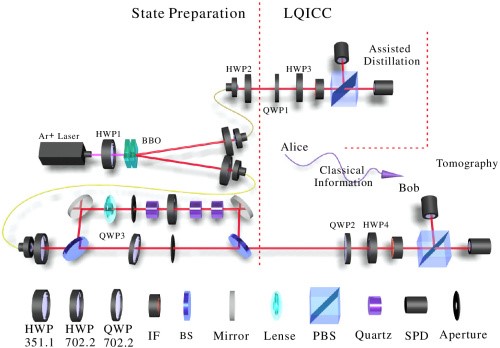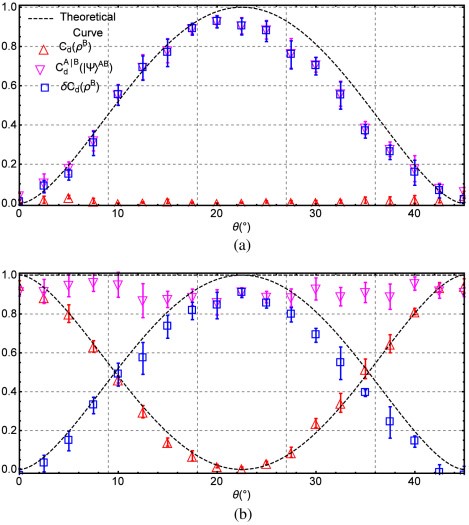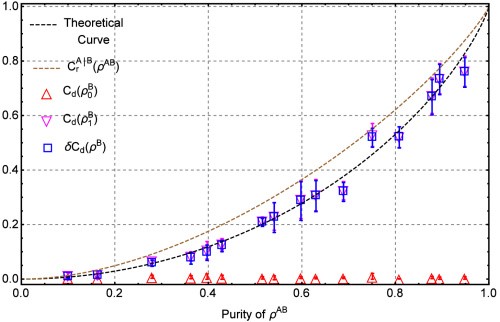Quantum coherence, which is the core in quantum mechanics, has been used in many fields of quantum physics, such as biological systems, transport theory, thermodynamics, nanoscale physics, and other scientific work associated with quantum theory. Recently, the manipulation and conversion of quantum coherence in bipartite or multipartite systems has been a hot topic. The manipulation of coherence in a bipartite system was discussed by Chitambar et al. and Streltsov et al. when performing assisted distillation of quantum coherence. The task is considered with protocols where Alice can perform arbitrary operations and Bob is restricted to only incoherent operations while classical communication between Alice and Bob is allowed, which is referred as local quantum-incoherent operations and classical communication (LQICC).
Prof. LI Chuanfeng and Prof. XIANG Guoyong's group from University of Science and Technology of China (USTC) made great progress in experimental investigation of quantum coherence and reported the first experimental test of assisted distillation of quantum coherence, which might be helpful in remote quantum information processing and quantum control.

Figure 1 Experimental Set up (Image by LI Chuanfeng & XIANG Guoyong)
A recent theoretical frame work [Phys. Rev. Lett. 116, 070402 (2016)] study the task of assisted distillation of quantum coherence and provided a theoretical solution to this problem. To fill the gap of experimental test of the task in assisted distillation of quantum coherence, Prof. Chuan-Feng Li and Prof. Guo-Yong Xiang’ group experimentally implement a class of such LQICC protocols based on a linear optic system, for extracting the maximal distillable coherence on one subsystem in our single-shot photonic scheme.

Figure 2 Experimental results for two classes of pure states (Image by LI Chuanfeng & XIANG Guoyong)

Figure 3 Experimental results for Werner states (Image by LI Chuanfeng & XIANG Guoyong)
The results show that even in the presence of experimental imperfections and limitations, a maximal increase in distillable coherence can be observed even in the single-copy scenario for pure states. Furthermore, the experimental study with a specific class of mixed states is also reported, which showed that distillable coherence can be increased with less demand than entanglement distillation and also shed light on the strong relationship between quantum coherence and quantum correlation.
The results of the research have been published on Optica, the Journal of OSA. Graduate student WU Kangda and Postdoctoral researcher HOU Zhibo contributed equally to this work. This Work is supported by National Natural Science Foundation of China (NSFC) (11574291); National Key R&D Program (2016YFA0301700).
Source: https://www.osapublishing.org/optica/fulltext.cfm?uri=optica-4-4-454&id=363017
Contact
Prof. XIANG Guoyong
Key lab of Quantum Information
University of Science & Technology of China
gyxiang@ustc.edu.cn
http://lqcc.ustc.edu.cn/index/info/526